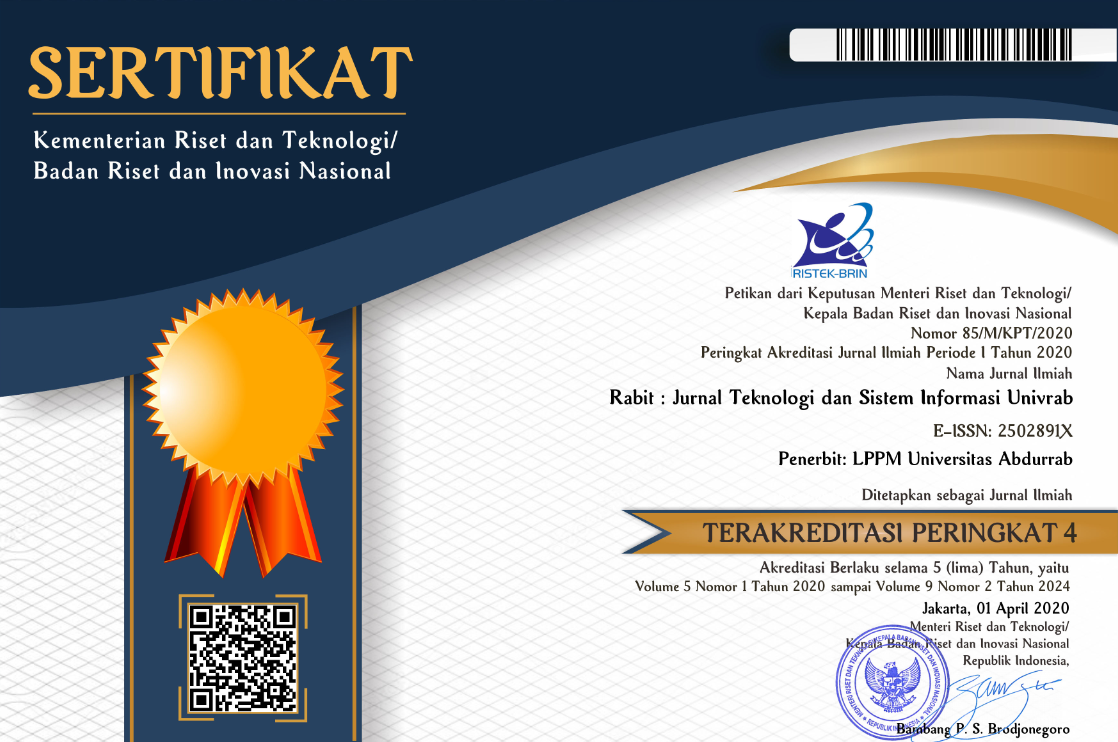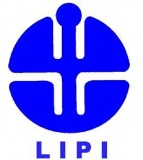PENGEMBANGAN APLIKASI WEB KOST-KOSTAN DI KOTA BATAM DENGAN METODE EXTREME PROGRAMMING
Abstrak
Setiap tahunnya, terdapat banyak mahasiswa baru dari luar kota datang untuk melanjutkan jenjang pendidikannya di tempat baru. Secara tidak langsung kebutuhan akan tempat tinggal akan meningkat secara proposional, terutama di daerah yang dekat dengan institusi pendidikan tinggi. Tapi sering kali keterbatasan informasi membuat para calon mahasiswa maupun mahasiswa baru mengalami kebingungan dalam mencari informasi tempat tinggal atau kost. Oleh karena itu, penulis berniat mengembangkan sebuah aplikasi web kost-kostan yang dimana dapat menyediakan informasi tersebut dan menghubungkan penyedia kost dengan pencari kost. Aplikasi web juga sangat fleksibel sehingga dapat diakses kapan saja dan dari mana saja asal terhubung dengan internet. Selama proses penelitan ini penulis menerapkan metode Extreme Programming (XP). Penelitian nantinya akan menghasilkan sebuah aplikasi web dimana penyedia kost dapat mempromosikan kost-kostannya dan juga pencari kost dapat mencari kost yang diinginkan dengan segala informasi sudah tertera didalam aplikasi. Dari penelitian ini penulis menyimpulkan aplikasi web kost-kostan sangat dibutuhkan pada saat ini. Penerapan XP sebagai metode penelitian juga sangat cocok dikarenakan jangka waktu yang cukup singkat dan tentunya metode XP sangat terstruktur selama penerapannya.
Referensi
D. W. L. Pamungkas and S. Rochimah, “Pengujian Aplikasi Web,” J. IPTEK, vol. 23, no. 1, pp. 17–24, 2019.
F. Anwer, S. Aftab, and I. Ali, “Proposal of Tailored Extreme Programming Model for Small Projects,” Int. J. Comput. Appl., vol. 171, no. 7, pp. 23–27, 2017.
T. Z. Ivgantius and J. F. Andry, “Development of Warehouse Management System Using Extreme Programming,” Int. J. Eng. Inf. Syst., vol. 3, no. 9, pp. 39–46, 2019.
M. S. Pinontoan, A. Rachmat, and R. Delima, “Penerapan Metode Waterfall Dan Webqual 4.0 Pada Pengembangan Website Dealer Asa Mandiri Motor,” J. Tek. Inform. dan Sist. Inf., vol. 5, no. 2, pp. 201–211, 2019, doi: 10.28932/jutisi.v5i2.1729.
F. Ardiansyah, “SISTEM PREDIKSI HARGA SEWA KOST DENGAN MENGGUNAKAN RANDOM FOREST ANALYTICS ( Studi Kasus : Kost Eksklusif di Daerah Istimewa Yogyakarta ) TUGAS AKHIR,” Tugas Akhir, 2020.
A. Singh, “Integrating the Extreme Programing Model with Secure Process for Requirement Selection,” Integr. Extrem. PROGRAMING Model WITH Secur. Process Requir. Sel., pp. 423–426, 2018.
A. S. Abdelghany, N. R. Darwish, and H. A. Hefni, “An Agile Methodology for Ontology Development,” Int. J. Intell. Eng. Syst., vol. 12, no. 2, pp. 170–181, 2019.
M. Adnan, M. Afzal, and K. H. Asif, “Ontology-Oriented Software Effort Estimation System for E-commerce Applications Based on Extreme Programming and Scrum Methodologies,” Comput. J., 2019.
Mukrodin, “Dext-Based Billing Information Systems menggunakan Metode Extreme Programing,” J. Sist. Inf. dan Teknol. Perad., vol. 2, no. 1, pp. 6–12, 2021, [Online]. Available: www.journal.peradaban.ac.id.
##submission.copyrightStatement##
##submission.license.cc.by-nc-sa4.footer##1. Hak cipta dari semua manuskrip jurnal dipegang oleh RABIT: Jurnal Teknologi dan Sistem Informasi Univrab.
2. Ketentuan hukum formal untuk mengakses artikel digital jurnal elektronik tunduk pada ketentuan lisensi Creative Commons Attribution-ShareAlike (CC BY-NC-SA), yang berarti bahwa RABIT: Jurnal Teknologi dan Sistem Informasi Univrab berhak untuk menyimpan, mentransfer media / format, mengelola dalam bentuk basis data, memelihara, dan menerbitkan artikel.
3. Naskah yang diterbitkan baik cetak maupun elektronik adalah akses terbuka untuk tujuan pendidikan, penelitian, dan perpustakaan. Selain itu, dewan editorial tidak bertanggung jawab atas pelanggaran hukum hak cipta.
 PDF
PDF
 Abstrak views: 507
Abstrak views: 507
 downloads: 497
downloads: 497

 :
:












